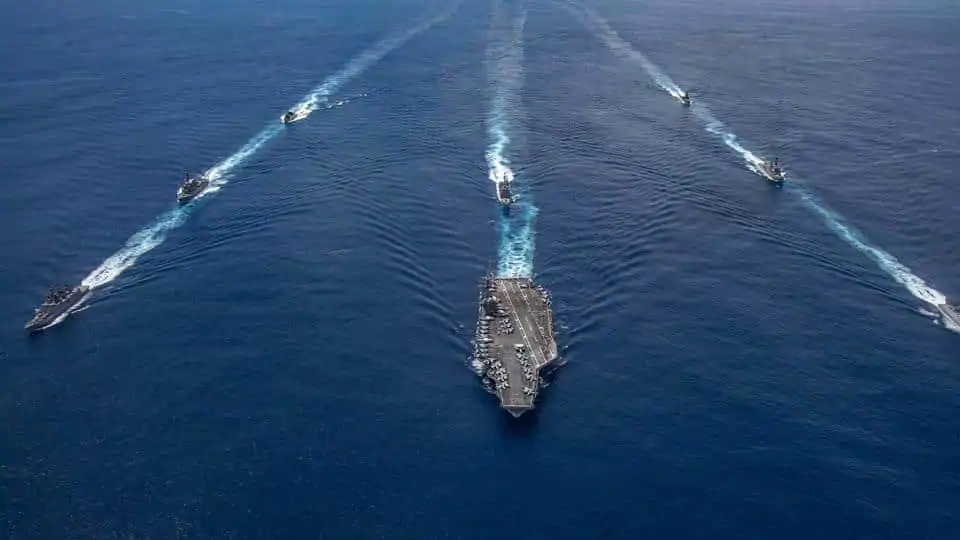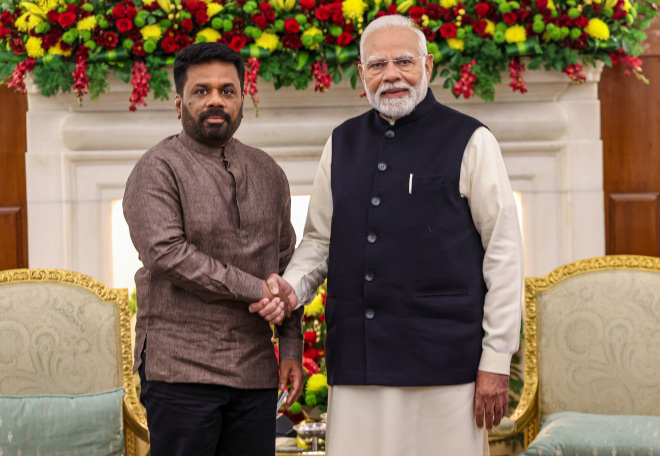
An internet imagery.
NEW DELHI (PTI): Over 120 warships of "extra-regional forces" are currently deployed in the Indian Ocean and a "race" for strategic bases in the region is only going to gain momentum in times to come in view of rising global interest in the area, Chief of Defence Staff Gen Bipin Rawat has said.
In an address on Friday, at the Global Dialogue Security Forum, he underlined the need for India to put greater focus on having strong bilateral, trilateral and multilateral arrangements with like-minded countries to maximise its strategic leverage in the region.
Gen Rawat's comments came in the midst of China's growing military muscle flexing in the Indian Ocean as well as the Indo Pacific that has triggered renewed global concerns and apprehensions.
Referring to India's aspirations to become a major global power, he said the country will have to achieve while living in a "tough neighbourhood" and in an "increasingly contested" region.
"At present, there are over 120 warships of extra-regional forces deployed in the Indian Ocean Region in support of various missions. Till now, the region, by and large, has remained peaceful albeit under contestation," Gen Rawat said referring to deployment of warships by countries outside the region.
The Indian Ocean, considered the backyard of the Indian Navy, is critical for India's strategic interests. China has been making concerted efforts to increase its presence in the region.
"Of late, along with geo-strategic competition in the Indo-Pacific, we are also witnessing a race for strategic places and bases in the Indian Ocean region, which is only going to gain momentum in times to come," the Chief of Defence Staff said.
China has already set up a major military in Djibouti and developing the Gwadar port in Pakistan to have leverage in the maritime domain having strategic interests to India.
"In recent years, China's economy and military rise coupled with competition to increase the influence in the region has attracted a great deal of interest," Gen Rawat said.
He said India will have to focus on its ties with blocs like Japan-Australia-India and Association of Southeast Asian Nations (ASEAN) to pursue its strategic interests.
"Most of the countries in the region are seeking to reap the economic dividends through improved maritime connectivity and harnessing blue economy for which infrastructure development is a prerequisite," Gen Rawat said.
"Residents' powers and extra-regional powers have shown a renewed interest in investing in infrastructure development in these countries in order to maintain and increase geopolitical influence," he said.
The Chief of Defence Staff said the Indo-Pacific region in general and the Indian Ocean region in particular will remain vital for transit and world trade.
"Based on the challenges that we face as a rising regional power, we require structured long-term planning for capability building and capability development of our defence forces," he said.
"In our quest to build a stronger India, we need a peaceful and stable security environment. We need to maintain our strategic autonomy, cooperative relations with extra-regional powers underscored by strong regional linkages that would provide us with a greater degree of strategic leverage," Gen Rawat said.
He also talked about the importance of technology for the defence forces.
"In the military field, technology must be a means of deterrence not a source of destruction. Our approach to security hence needs to shift from unilateral to the multilateral mode which mandates increasing training engagements with partner nations in order to fortify the future," he said.
Gen Rawat said the modernisation programme of the armed forces must be undertaken following a careful assessment of the security challenges.
"Today, we are facing increasing security challenges, and to my mind, the best guarantor of peace and stability is to have dissuasive deterrence. For a nation like India, the security of land borders remained our primary concern," he said.
"Therefore, there is a need to develop integrated structures to ensure modernisation programmes to be undertaken by our armed forces based on careful assessment of the nature of threats and challenges," he added.
 Next Article
Next Article













The Indian Air Force, in its flight trials evaluation report submitted before the Defence Ministry l..
view articleAn insight into the Medium Multi-Role Combat Aircraft competition...
view articleSky enthusiasts can now spot the International Space Station (ISS) commanded by Indian-American astr..
view article